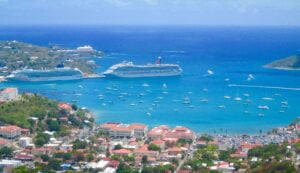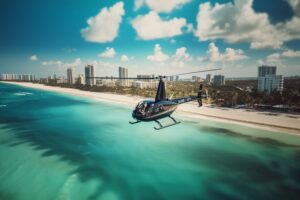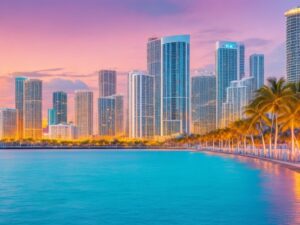Step into a world of vibrant cultures and fascinating stories as you embark on a journey to explore the rich history of Caribbean Islands. From the ancient heritage of indigenous cultures to the thrilling era of piracy and the tumultuous times of European colonization, these tropical paradises hold a treasure trove of tales waiting to be discovered. Immerse yourself in the colorful past of these enchanting islands, where every corner holds a piece of history just waiting to be unearthed. Through the ruins, artifacts, and captivating narratives, you’ll gain a deeper appreciation for the diverse tapestry that has shaped the Caribbean into the extraordinary destination it is today.
Table of Contents
ToggleHistory of Caribbean Islands: Indigenous Cultures
The rich history of the Caribbean Islands begins with the indigenous cultures that inhabited the region long before the arrival of Europeans. These diverse cultures included the Taíno, Arawak, Carib, and many other tribes, each with its own unique customs, languages, and traditions. These indigenous people thrived in the Caribbean for thousands of years, developing complex societies with advanced agricultural techniques, vibrant art, and spiritual practices.
Arrival of Europeans
Christopher Columbus
The arrival of Christopher Columbus in the Caribbean marked a significant turning point in its history. In 1492, Columbus’s voyage across the Atlantic led to his landing on the islands of the Bahamas. Although his journey was initially intended to find a direct sea route to Asia, his encounter with the indigenous people of the Caribbean opened the doors to European exploration and colonization of the region.
Spanish Colonization
Following Columbus’s discovery, Spain quickly emerged as a major colonial power in the Caribbean. The Spanish established settlements and began exploiting the region’s natural resources, primarily gold and silver. This colonization led to the dramatic decline of the indigenous populations due to diseases brought by the Europeans and forced labor.
French and English Influence
While Spain dominated the Caribbean during the early years of colonization, the French and English soon established their presence in the region. The French claimed territories such as Haiti, Martinique, and Guadeloupe, while the English established colonies in present-day Jamaica, Barbados, and other islands. These European powers engaged in intense rivalries and conflicts, shaping the future of the Caribbean through their political control and economic endeavors.
Transatlantic Slave Trade
One of the darkest chapters in Caribbean history is the transatlantic slave trade. Beginning in the 16th century, millions of enslaved Africans were forcibly brought to the Caribbean to work on plantations. This brutal system had a profound impact on the region, shaping its demographics, economy, and cultural fabric. The transatlantic slave trade left an indelible mark on the Caribbean, with African influences permeating its music, cuisine, language, and religious practices.
Plantation Economy
Sugar and Coffee Production
The plantation economy, fueled by the labor of enslaved Africans, became the backbone of the Caribbean’s economy during the colonial period. Sugar plantations, in particular, flourished and became highly profitable enterprises. The Caribbean became known as the “Sugar Islands,” with countries like Jamaica, Barbados, and Cuba dominating global sugar production. Coffee production also became a significant economic activity in parts of the Caribbean, contributing to the wealth and development of the region.
African Cultural Influences
Despite the horrors of slavery, African cultures persevered and strongly influenced Caribbean society. Enslaved Africans brought with them their music, dance, religious beliefs, and culinary traditions, which merged with indigenous and European influences to create vibrant and unique cultural expressions. Today, Caribbean music genres such as reggae, calypso, and salsa have roots in African rhythms and melodies, while traditional Afro-Caribbean religions continue to be practiced and celebrated.
Piracy in the Caribbean
Golden Age of Piracy
The Caribbean also experienced a notorious period known as the Golden Age of Piracy in the late 17th and early 18th centuries. Piracy flourished in the region due to its strategic location, numerous trade routes, and lax governance. Famous pirates such as Blackbeard, Anne Bonny, and Calico Jack wreaked havoc in the Caribbean, attacking merchant ships and establishing pirate enclaves on remote islands.
Famous Pirates of the Caribbean
The legends of infamous pirates still captivate our imagination today. From the flamboyant Captain Henry Morgan, who later became a respected British governor, to the cunning Captain Kidd and the resourceful Mary Read, the stories of these pirates have become ingrained in Caribbean folklore. Their exploits not only challenged the dominance of European powers but also left an enduring legacy of adventure and rebellion in the region’s history.
Colonial Rule
British colonies
The British played a significant role in the colonization of the Caribbean, establishing colonies in Jamaica, Barbados, Trinidad, and other islands. These colonies became centers of British control and economic exploitation, with sugarcane plantations and rum production driving their prosperity. This era also witnessed the introduction of slavery codes and racial hierarchy that shaped the social structure of the British Caribbean.
French colonies
The French established colonies in various Caribbean islands, including Haiti, Guadeloupe, and Martinique. These colonies developed vibrant plantation economies focused on sugar production, propelled by the labor of enslaved Africans. French colonial rule left a lasting impact on the culture, language, and architecture of these islands, with a distinct blend of African, European, and Indigenous influences.
Dutch colonies
The Dutch presence in the Caribbean was mainly centered around Suriname and the former Netherlands Antilles. Dutch colonies, particularly Suriname, were characterized by extensive plantation agriculture, slavery, and trade. However, the Dutch Empire gradually relinquished control over its Caribbean territories, leading to various shifts in power and governance.
Maroon Communities
Amidst the oppression of slavery, maroon communities emerged throughout the Caribbean. These were settlements established by enslaved Africans who managed to escape captivity and formed independent communities in remote and difficult-to-access regions. Maroons developed unique cultures and governance systems, relying on their expertise in guerrilla warfare and resourcefulness to maintain their freedom and challenge colonial control.
Emancipation and Abolition
The abolition of slavery in the Caribbean was a pivotal moment in its history. Throughout the 19th century, various factors, including Enlightenment ideals, slave revolts, and the growth of anti-slavery movements, led to a gradual shift towards emancipation. Countries such as Britain and France passed legislation to abolish slavery, ushering in a new era for the Caribbean.
Post-Colonial Era
Independence Movements
In the aftermath of slavery’s abolition, Caribbean nations began to strive for independence from their colonial rulers. Inspired by nationalist movements and the desire for self-governance, leaders such as Toussaint Louverture in Haiti and Marcus Garvey in Jamaica advocated for independence and pan-Caribbean unity. Throughout the 20th century, Caribbean nations gradually achieved independence, establishing their own governments and asserting their cultural and political identities.
Democratic Developments
The post-colonial era in the Caribbean witnessed a range of developments in governance and democracy. While some nations experienced political instability and dictatorships, many Caribbean countries established democratic systems of government. Elections, constitutional reforms, and the involvement of social movements have played integral roles in shaping the region’s political landscape.
Preserving Caribbean History
Historical Sites
The Caribbean is dotted with historical sites that offer a glimpse into its rich past. From ancient indigenous ceremonial grounds to fortresses that once defended against European invasions, these sites provide a tangible connection to the region’s history. Notable examples include El Morro in Puerto Rico, Brimstone Hill Fortress in St. Kitts, and Tulum in Mexico.
Museums and Archives
Museums and archives in the Caribbean serve as custodians of the region’s history, preserving artifacts, documents, and records that shed light on its diverse heritage. Institutions such as the Museum of Antigua and Barbuda, the National Museum of Jamaica, and the Museum of the Dominican Man offer valuable insights into the various chapters of Caribbean history.
Oral History and Traditions
Oral history and traditions play a crucial role in preserving the intangible aspects of Caribbean history. Storytelling, folk music, dance, and religious ceremonies offer glimpses into the cultural practices passed down through generations. These traditions serve as living testimonies to the resilience and spirit of the Caribbean people, ensuring that their history is not forgotten.
As you explore the rich history of the Caribbean Islands, you will discover a tapestry of indigenous cultures, European colonization, slavery, and the struggle for independence. The region’s past is woven into its vibrant present, leaving a lasting legacy that is embraced and celebrated by its people. From majestic archaeological ruins to spirited festivals, the Caribbean offers an unforgettable journey through time. Take the opportunity to delve into its history, listen to its stories, and immerse yourself in its captivating heritage.





